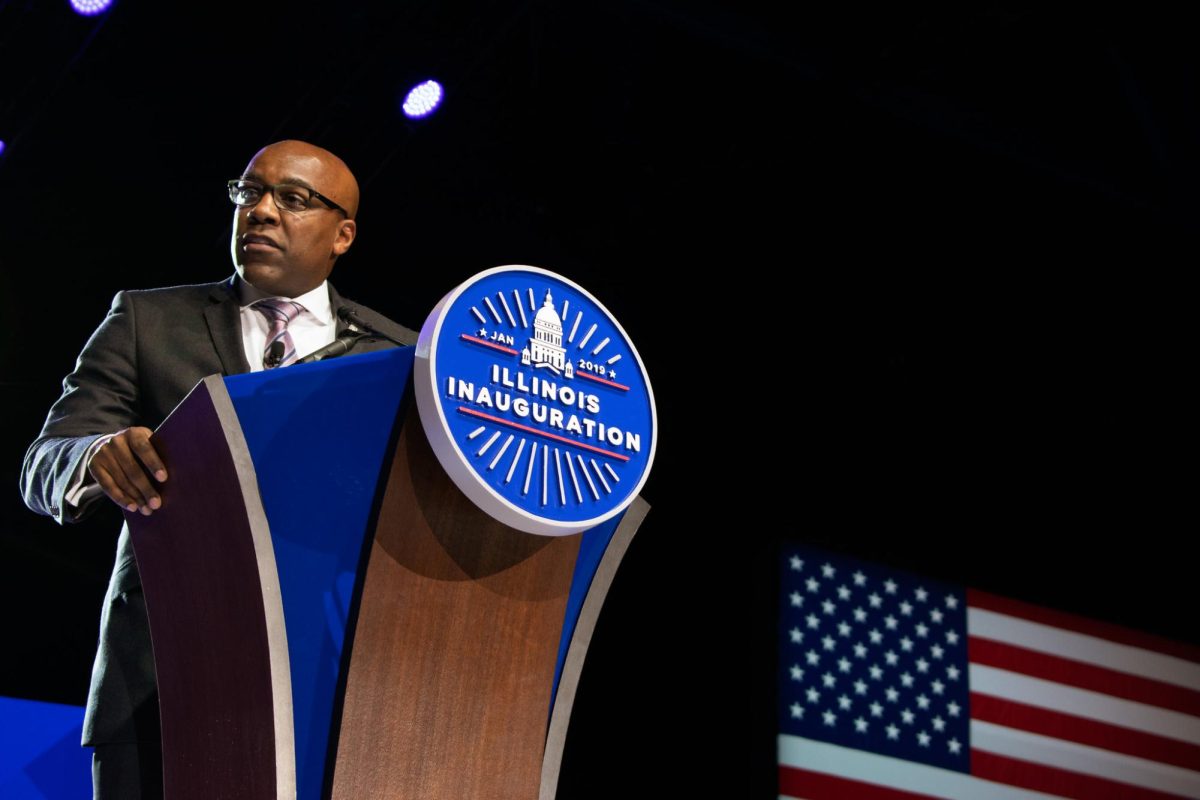This article has been edited from an earlier version.
According to an e-mail obtained by The Daily Illini, faculty and academic professionals will not receive a general salary increase for the 2011 fiscal year.
The e-mail was sent July 28 to the University administration mailing list from Walter Knorr, University vice president and chief financial officer.
“The concern remains that State revenues will not be sufficient to support the overall State budget and we will continue to face uncertainty in the timeliness of the University’s appropriation payments,” Knorr said in the e-mail.
The stagnation in faculty salaries comes amid a presentation by Knorr at the July 22 Board of Trustees meeting, where he told trustees that the University’s three campuses are actually under budget by $16 million. According to board minutes, tuition is generating more revenue for the University than in year’s past. Knorr pointed out in his presentation that tuition generated $730 million in revenue, up 50.2 percent from fiscal year 2006.
Get The Daily Illini in your inbox!
But because of uncertainties with state funding, Knorr said fiscal restraint is necessary even as the University stays in the black.
“General pay increases are restricted because of the uncertainty of the State budget and delays in payments to the University of the annual appropriation,” Knorr said in an e-mail to The Daily Illini.
Mrinalini Rao, vice president for academic affairs for the University, said whether the University system goes into the red financially will be contingent upon the state’s ability to meet its promises.
“The University’s FY2011 appropriation has been cut $46 million from the prior year’s level,” Knorr said.
Knorr said he is hopeful not to have any furlough days for faculty and staff in the 2010-11 academic year. A hiring freeze will remain in effect at all three campuses, and only limited replacement hires which require the approval at the Dean or Provost level are being permitted.
Thomas Overbye, professor in electrical and computer engineering, and chair of the campus operations committee in the Urbana-Champaign faculty senate, said faculty retention remains a major problem in academic disciplines where industrial work can offer more competitive compensation.
Overbye said his department lost a faculty member in the power systems area to industry.
“I’m sure salary competitiveness was an issue,” Overbye said of that loss.
Overbye said he is unsure whether a popular course he plans to teach in the fall (ECE 333 Green Electric Energy) will be taught in the spring, due to a lack of available faculty.
“You cannot continue to not give faculty raises, and expect to retain top faculty,” Overbye said.
Rao said the University system recognizes that faculty might decide to leave the University to pursue other opportunities and is working to create attractive retention packages for faculty.
“If these faculty members and their (graduate students and post-doctoral researchers) leave for another state, it is not only a loss to the University of Illinois, but has a negative impact on the state’s economy,” Rao said.
Robert Easter, interim chancellor and provost of the Urbana campus said the University is doing everything it can to retain its world-class faculty.
Lennard Davis, a professor of English and disabilities studies at the University of Illinois at Chicago, said he feels a little unappreciated by the fact that he has not received a pay raise while the University system is in the black.
“I published two books last year. Generally, you get a merit raise; I got nothing,” Davis said.
He also said taking furloughs were synonymous to taking a pay cut.
Davis said what bothers him about the entire University system’s budgeting process is that faculty do not get a larger input.
“The reality is we don’t get to see the books,” Davis said.
Davis is part of a group of faculty involved in the creation of a faculty union at UIC so that faculty members can have more input in University financial decisions.
He added that a faculty union that “had a say in budgetary matters, would be able to determine faculty and staff compensation in a fair and rational way.”
Overbye said he had not heard of any talk of a faculty union being formed at the Urbana campus, and is not in favor of forming a union.
“For the most part, faculty are awarded upon their individual accomplishments,” he said. “I think the current system should stay.”
Some of the Urbana campus’s faculty are members of the Campus Faculty Association. However, this is an oversight organization that does not have the negotiating power of other unions.
Overbye added that he has felt the administration has been very forthcoming with passing information onto faculty about the University’s financial situation.
“I don’t feel that they are deliberately withholding information from the faculty … We as the University have really hard decisions going forward,” Overbye said.





